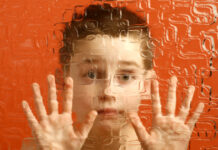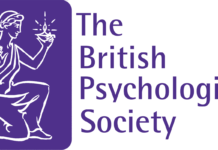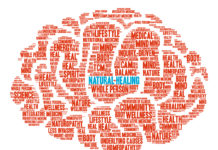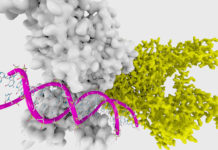Alternative Therapies for Adolescent Depression as Effective as CBT, Study Finds
Brief psychodynamic and psychosocial interventions help maintain reduced depressive symptoms
Researchers Call for Transparency About Limits of Psychiatric Knowledge
A new paper explores how the disputed nature of psychiatric knowledge influences public perceptions and debates within the field of mental health.
Psychological Research Fails to Capture Human Diversity, Researchers Call for Action
Data demonstrate an overreliance of non-representative and non-diverse sampling biases in psychological research.
Child Abuse, Mental Health and Mental Illness
Psychiatrists and medical doctors don’t ask who was hitting who and how often in your family. These questions would largely put them out of business and invalidate their industries. These questions would make a mockery of their many years of schooling and many prescription pad options. But these questions would also heal.
Smartphones, Loneliness, and Depression in Teens
New study finds that smartphone use may precede experiences of loneliness and depressive symptoms among older teens according to longitudinal analysis.
Children with Autism may be Over-diagnosed with ‘ADHD’
A commonly used ADHD diagnostic measure may find overlapping symptoms in autism and ADHD, resulting in over-diagnosis.
Psychologists Push For New Approaches to Psychosis: Part 1
Psychologists and people with experience of psychotic symptoms publish a report on new ways of understanding psychosis.
Reimagining Healthcare
The conventional Western classification systems of health conditions are based on flawed science shaped by reductionist, hierarchical, and profit-driven ideologies. THEN wants to create a new paradigm built upon principles drawn from systems science, the life course perspective, developmental neurobiology, and other evidence-informed studies.
Sociologist Questions Effectiveness and Ethics of Mental Health Services
Medical sociologist David Pilgrim argues that mental health care is neither effective nor “kindly,” as it often relies on flawed research and ineffective treatments.
What Would a Trauma-Informed Society Look Like?
Imagine if we, as a society, started recognizing trauma, pain, grief, fear, the need for connection and understanding, and oppression without defensiveness or denial. What if, hypothetically, we saw the signs in people who were "defiant," "withdrawn," "oppositional," "depressed," "manic," or otherwise as desperate pleas to have their needs met, and stopped telling them they were sick for doing so? What would a society that actually encouraged expression of emotion, compassion, and empathy look like?
How to Change Psychology to Address Racial Health Disparities
Psychology can only deal with racial health disparities effectively by incorporating critical race theory and intervening at a structural level.
It is Time for Global Mental Health to Acknowledge Sociostructural Determinants of Distress
Researchers call for action to address social challenges and inequalities that obstruct mental health and well-being globally.
Researchers Make a Case for a “Theory of Nothing” in Psychology
What meaning do psychological constructs really hold, and how are they operationalized and statistically modeled within psychology research?
Large Rigorous Study Debunks Popular Gene-Environment Theory of Depression
A large and rigorous meta-analysis fails to find support for the gene-environment interaction theory of depression.
Study Finds No Correlation between Personality at 14 and 77
This result calls into question popular notions about the correlations between personality and later-life achievement and health outcomes.
Linking Screen Time, Smartphones, and Stress Among Young Adults
New review ties increased screen time to increasing anxiety and depression among young adults throughout the United States.
Increasing Prevalence of Mood Disorders Among Teens and Young Adults
Depression, serious psychological distress, and suicide attempts have risen substantially since the early 2000s among young adults – what’s changed?
Emotional Child Abuse Just as Harmful as Physical Abuse
Different types of child abuse have equivalent psychological effects, according to a study in JAMA Psychiatry. It has previously been assumed that emotional and verbal abuse could have different or less harmful impact on a child’s psychology than physical or sexual abuse, but research now suggests that these forms of abuse can be just as damaging.
Neoliberalism Drives Increase in Perfectionism Among College Students
Meta-analytic study detects upsurge in patterns of perfectionism in young adults and explores how neoliberalism contributes to this trend.
Large Study Finds Epigenetic Changes Associated with Trauma Explained by Smoking
A new study suggests that epigenetic changes that have been associated with trauma may actually be due to environmental toxins.
The Conflicts That Result From Globalizing Euro-American Psychology in India
Researchers examine the transformation of work, life, and identity in India as a result of Western corporate and psychological culture.
Researchers Call for Structural Competency in Psychiatry
Structural competency in psychiatry emphasizes the social factors shaping patient presentations and encourages physician advocacy.
Time’s Up: Culture of Denial Impacts Mental Health of Sexual Abuse Survivors
Study finds that not believing sexual abuse survivors often leads to self-blame and mental health issues.
Dickens’ Christmas Carol: A Psychiatric Primer of Character and Redemption
Scrooge’s character was forged from his own emotional pain. Indeed, we can change the course of our lives through facing and mourning that pain. Want, deprivation and cruelty create the evils of the world. Mourning and trust, in the context of love, are its antidotes.
All in the Family: 4 Steps Toward Healing Adverse Childhood Experiences
It turns out that our stress response and inflammatory modeling are set early in our childhood. While our infant microbiome certainly lays a foundation, our beliefs and the thoughts that run like a ticker tape under our life experience cannot be underemphasized. How can we heal our pasts?
































